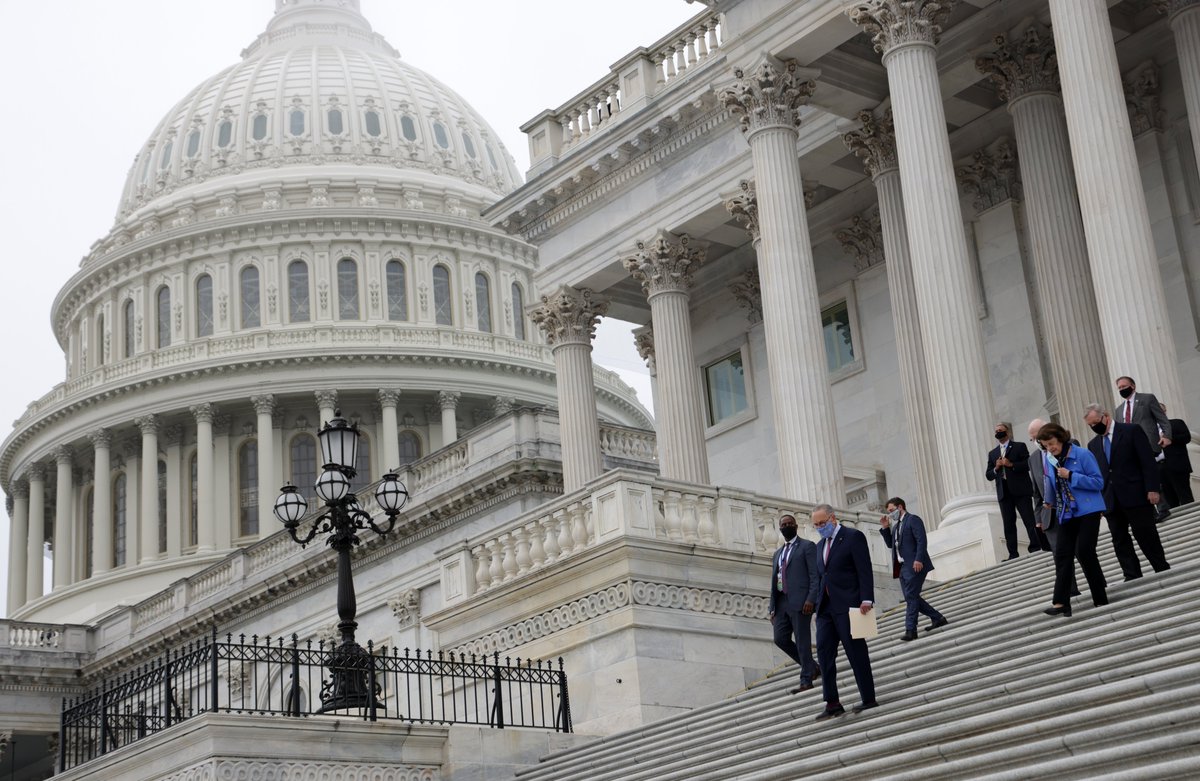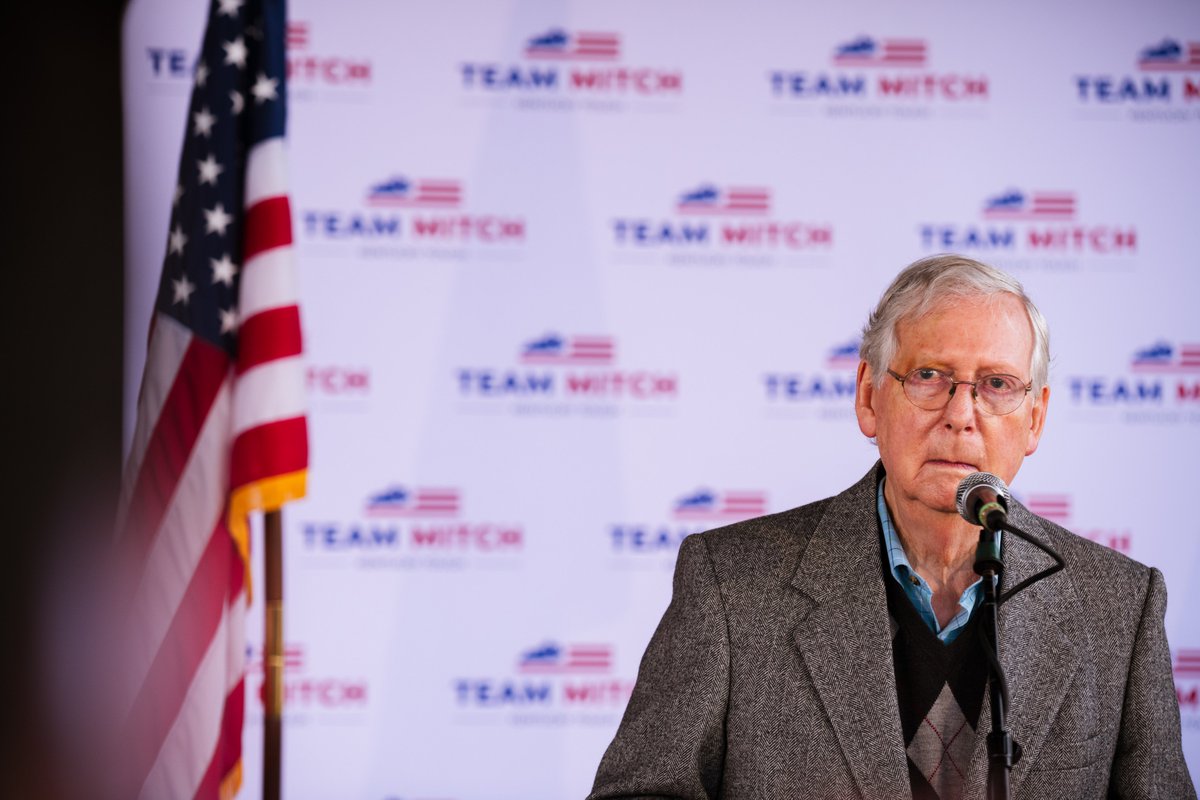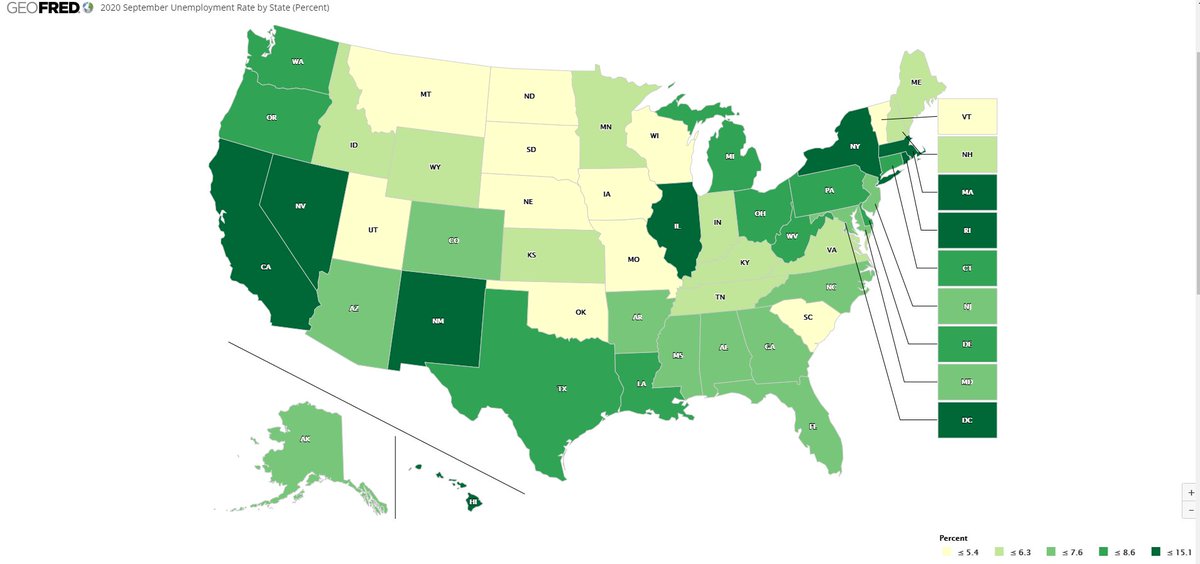
After election day, there is a chance of constitutional chaos.
It could take the form of acute uncertainty, not only about who won the election but also about the process by which that question will be settled trib.al/sKzNZAb
It could take the form of acute uncertainty, not only about who won the election but also about the process by which that question will be settled trib.al/sKzNZAb
We might have a perfect storm:
🗳️Close contests in key states
📬Issues with mail-in voting
🧐Allegations of voter suppression and fraud
🙅🏼♂️An incumbent who is unwilling to accept a loss
trib.al/sKzNZAb
🗳️Close contests in key states
📬Issues with mail-in voting
🧐Allegations of voter suppression and fraud
🙅🏼♂️An incumbent who is unwilling to accept a loss
trib.al/sKzNZAb

It is essential to understand that Nov. 3 is only the first of three defining days.
The second is Dec. 14, when members of the Electoral College cast their votes. The third is Jan. 6, 2021, when Congress meets in joint session to declare the winner
trib.al/sKzNZAb
The second is Dec. 14, when members of the Electoral College cast their votes. The third is Jan. 6, 2021, when Congress meets in joint session to declare the winner
trib.al/sKzNZAb

What happens on Nov. 3 is almost always enough to decide the presidential election.
In nearly every state, the candidate who receives the most votes statewide is entitled to the vote of all of the state’s electors trib.al/sKzNZAb
In nearly every state, the candidate who receives the most votes statewide is entitled to the vote of all of the state’s electors trib.al/sKzNZAb

Suppose, for example, that President Donald Trump receives 47.3% of the vote in Ohio, and that former Vice President Joe Biden receives 47.2% of the vote there.
All of Ohio’s 18 electoral votes would be allocated to Trump trib.al/sKzNZAb
All of Ohio’s 18 electoral votes would be allocated to Trump trib.al/sKzNZAb

But what if we don’t know on Nov. 3, or even a month later, who won Ohio? Or Wisconsin, Michigan, Pennsylvania and Florida?
What if it takes a long time to count the votes, and what if the results are disputed? trib.al/sKzNZAb
What if it takes a long time to count the votes, and what if the results are disputed? trib.al/sKzNZAb

What is relevant is an obscure law — the Electoral Count Act of 1887.
The ECA was a direct response to a constitutional crisis in 1876, when Congress could not agree whether Samuel J. Tilden or Rutherford B. Hayes had won the election trib.al/sKzNZAb
The ECA was a direct response to a constitutional crisis in 1876, when Congress could not agree whether Samuel J. Tilden or Rutherford B. Hayes had won the election trib.al/sKzNZAb

If we read the act carefully, we can make progress toward handling any chaos that might arise in 2020.
Section 2 of the ECA makes state law decisive trib.al/sKzNZAb
Section 2 of the ECA makes state law decisive trib.al/sKzNZAb

Section 2 is basically a congressional pledge to respect the authority of the states.
A lot depends on a state making a “final determination” by Dec. 8, six days before the meeting on Dec. 14. If a state does that, Congress cannot alter its determination trib.al/sKzNZAb
A lot depends on a state making a “final determination” by Dec. 8, six days before the meeting on Dec. 14. If a state does that, Congress cannot alter its determination trib.al/sKzNZAb

Section 4 of the ECA is also important, because it should greatly limit the role of political shenanigans.
To reject a vote from an elector, both houses of Congress have to agree trib.al/sKzNZAb
To reject a vote from an elector, both houses of Congress have to agree trib.al/sKzNZAb

In 2020, with the Senate controlled by Republicans, and the House controlled by Democrats, electoral votes are highly unlikely to be rejected, if partisanship is decisive trib.al/sKzNZAb 

Congress is only allowed to reject the votes of electors if they have not been “regularly given.” For example:
– Votes for people who could not constitutionally become president
– Votes on the wrong day
– Votes that resulted from corruption
trib.al/sKzNZAb
– Votes for people who could not constitutionally become president
– Votes on the wrong day
– Votes that resulted from corruption
trib.al/sKzNZAb

But what if Congress receives two sets of returns – say, one from a Republican legislature and one from a Democratic governor, and both purporting to be the returns from a state?
The ECA’s Section 4 tries to sort that out trib.al/sKzNZAb
The ECA’s Section 4 tries to sort that out trib.al/sKzNZAb

In short: If one of the two sets of returns can claim the Dec. 8 safe harbor, it prevails.
If neither can claim it, the House and the Senate get to decide — if they can agree. If they can't, the certification by the governor of the state is authoritative trib.al/sKzNZAb
If neither can claim it, the House and the Senate get to decide — if they can agree. If they can't, the certification by the governor of the state is authoritative trib.al/sKzNZAb

• • •
Missing some Tweet in this thread? You can try to
force a refresh













